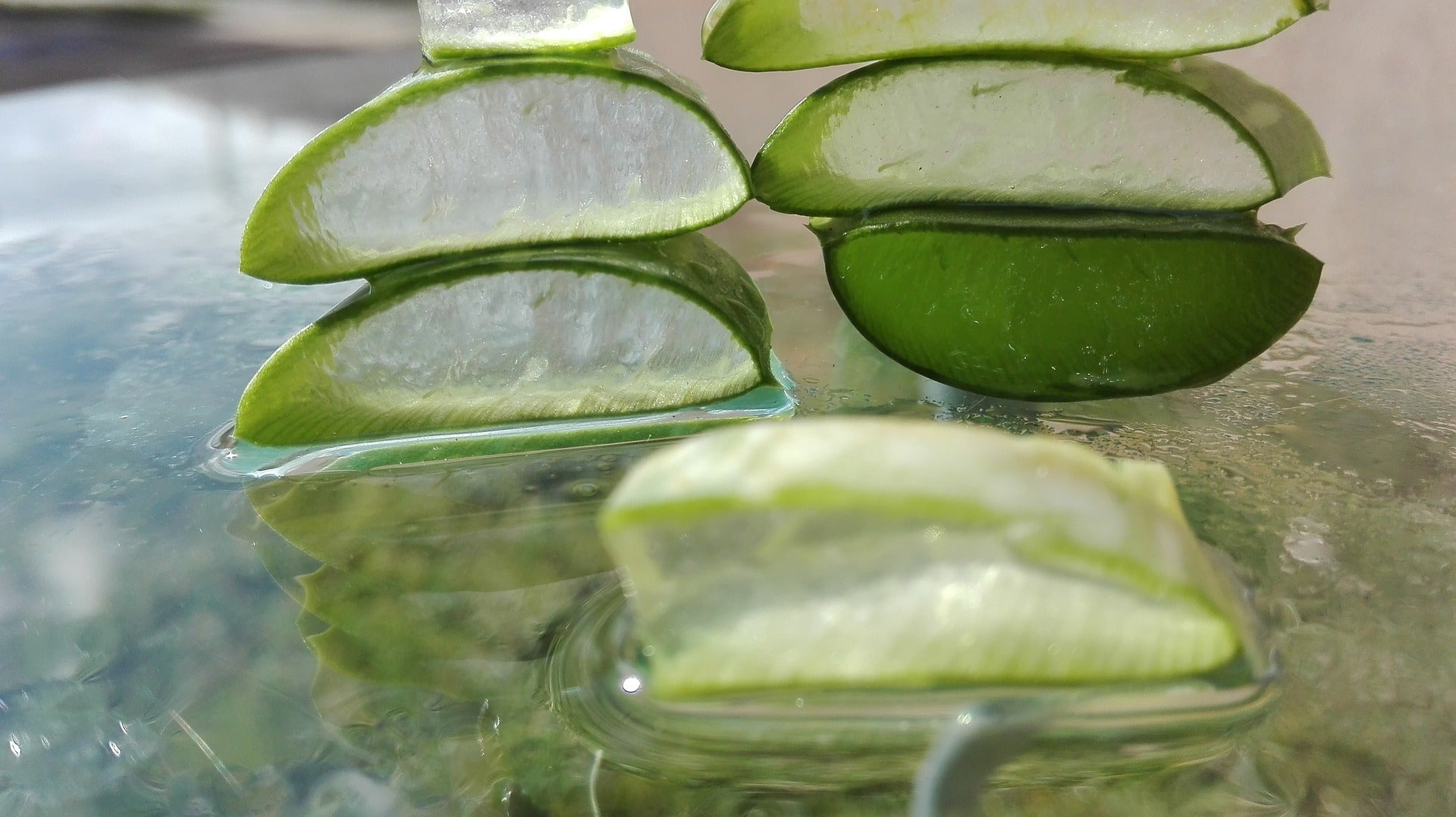
What are the benefits of aloe vera?
Honestly, aloe vera is such a special miracle ingredient that it deserves it's own blog!
I did some digging and here are some fun facts!
Aloe vera is a popular medicinal plant that people have used for thousands of years.
Aloe vera, or Aloe barbadensis, is a thick, short-stemmed plant that stores water in its leaves. It is best known for treating skin injuries, but it also has several other uses that could potentially benefit health.
This article lists eight potential health benefits of aloe vera. It also covers some of the risks associated with use.
1. It contains healthful plant compounds

Aloe vera is known for its thick, pointed, and fleshy green leaves, which may grow to about 12–19 inches (30–50 centimeters) in length.
Each leaf contains a slimy tissue that stores water, and this makes the leaves thick. This water filled tissue is the “gel” that people associate with aloe vera products.
The gel contains most of the beneficial bioactive compounds in the plant, including vitamins, minerals, amino acids, and antioxidants.
2. It has antioxidant and antibacterial properties
Antioxidants are important for health. Aloe vera gel
These polyphenols, along with several other compounds in aloe vera, help inhibit the growth of certain bacteria that can cause infections in humans.
Aloe vera is
3. It accelerates wound healing
People most often use aloe vera as a topical medication, rubbing it onto the skin rather than consuming it. In fact, it has a long history of use in treating sores, and particularly burns, including sunburn.
The United States Pharmacopeia describe aloe vera preparations as a skin protectant as early as 1810–1820. Studies suggest that it is an effective topical treatment for first and second degree burns.
For example, a
The evidence for aloe vera helping heal other types of wound is inconclusive, but the research is promising.
4. It may improve skin and prevent wrinkles.
There is some preliminary evidence to suggest that topical aloe vera gel can slow aging of the skin.
In a
Read more about aloe vera’s effects on the skin here:
Risks
Aloe vera is a safe remedy with few known side effects.
The
That said, the oral use of aloe vera may cause stomach cramps or diarrhea due to its laxative effects. There have also been
The
Summary
Aloe vera has a range of therapeutic properties, especially as an ointment for the skin and gums.
People can use bottled aloe vera gel or take it directly from the leaf of an aloe plant. Aloe vera juice has different uses to aloe vera gel.
A person should always speak to a doctor before using aloe products to treat a condition.
Epilynx's favorite is a Cooling Face Cream that has aloe vera as a base!
References:
https://www.medicalnewstoday.com/articles/318591#_noHeaderPrefixedContent






Leave a comment
This site is protected by hCaptcha and the hCaptcha Privacy Policy and Terms of Service apply.